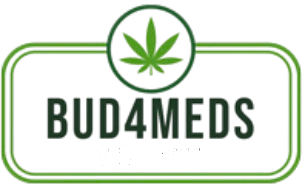|
IN BRIEF
|
In the realm of healthcare, understanding dosage is paramount to ensuring effective medication administration. Accurate dosage not only determines the success of treatment but also safeguards patients from potential adverse reactions and complications. This comprehensive guide aims to elucidate the essential principles of proper medication administration, exploring the six rights that healthcare professionals must uphold to provide safe and effective care. By addressing the nuances of medication management, including individual patient needs and response variations, this guide seeks to empower both clinicians and patients in their journey towards optimal health outcomes.

Administering medication safely is a critical responsibility in healthcare. This comprehensive guide explores the essential aspects of understanding dosage, ensuring proper medication administration, and highlighting the importance of adhering to established protocols. By focusing on key principles, healthcare professionals can promote patient safety and optimize therapeutic outcomes.
The Importance of Understanding Dosage
Understanding dosage is fundamental to effective medication administration. It involves recognizing not only the specific amounts required but also the timing and method of delivery. The six rights of medication administration — right patient, right medication, right dose, right route, right time, and right documentation — serve as essential checkpoints that nurses must verify before administering any medication. These rights help to minimize errors and ensure that patients receive the most appropriate care.
Factors Influencing Medication Dosage
Dosage requirements can vary significantly from one patient to another due to several factors. Age, weight, organ function, and individual health conditions all play crucial roles in determining the appropriate medication dose. For instance, pediatric and geriatric patients often require tailored doses, as their metabolic rates and organ functions differ from those of healthy adults. Therefore, healthcare providers must conduct thorough assessments and adjust medication plans accordingly.
Patient Assessment and Medication Management
A comprehensive patient assessment is vital for effective medication management. This includes reviewing medical history, current medications, and potential side effects, as well as understanding the mechanisms through which the medication will interact with the patient’s body. By establishing a clear medication routine, providers can confirm the exact dose and timing, ultimately improving patient adherence and safety.
The Role of Pharmacists in Medication Administration
Pharmacists play an integral role in ensuring safe medication administration. They offer expertise in medication management and help healthcare professionals understand detailed dosage instructions. Collaborating with pharmacists allows nurses to confirm specific dosing parameters and adjust therapies as required. This partnership is crucial for resolving discrepancies and educating patients about their medications.
Three Checks of Medication Administration
Adherence to the three checks before medication administration is imperative for patient safety. Firstly, verify the medication against the provider’s orders. Secondly, check the dosage calculations to ensure accuracy. Lastly, confirm the patient’s identity before administering the medication. These steps enhance the likelihood of safe administration and reduce the risk of potentially dangerous errors.
Understanding Side Effects and Reactions
All medications have the potential for side effects and adverse reactions. Providers should be knowledgeable about common reactions associated with each medication and be vigilant for any signs of severe responses. Equipping patients with information regarding possible side effects empowers them to engage in their treatment and communicate any concerns. This proactive approach can significantly enhance patient safety.
Continued Education on Medication Administration
Ongoing education and training in medication administration are essential to keep healthcare professionals up to date on best practices. Familiarity with evolving guidelines ensures that providers remain competent in their roles. Nursing students, in particular, should engage in comprehensive coursework that includes mastering dosage calculations and understanding the nuances of different medication routes.
Emerging Trends in Medication Administration
Recent advancements in technology have transformed medication administration protocols. Digital solutions, such as electronic health records and medication administration systems, have streamlined the medication process, reducing errors associated with handwritten prescriptions. Furthermore, digital reminders for medication schedules enhance adherence for patients, making it easier for them to follow their prescribed regimens.
Exploring Alternative Therapies
In addition to traditional medications, alternative therapies like CBD have become increasingly popular. Understanding the benefits and uses of hemp extract and CBD oil can offer patients additional options for symptom relief. By staying informed about these emerging therapies, healthcare providers can make well-rounded recommendations that cater to individual patient needs.
With the growing awareness of health and wellness, exploring the benefits of products like CBD gummies may also encourage patient engagement in their care plans. Understanding the impact of cannabis on health ensures that professionals can guide patients through informed decisions.
Understanding Dosage: A Comparative Analysis of Medication Administration
| Aspect | Details |
| Definition | Dosage refers to the specific amount and frequency of medication administration. |
| Importance | Ensures therapeutic effectiveness and minimizes the risk of side effects. |
| Six Rights | Verification of Right Patient, Right Drug, Right Dose, Right Route, Right Time, and Right Documentation. |
| Administration Methods | Oral, intravenous, intramuscular, subcutaneous, and topical routes. |
| Patient Variability | Dosing often needs adjustment based on patient age, weight, kidney function, and overall health. |
| Monitoring | Regular assessment for efficacy and adverse effects post-administration. |
| Documentation | Accurate record-keeping in patient charts is essential for continuity of care. |

Proper medication administration is crucial for achieving the desired health outcomes and ensuring patient safety. This comprehensive guide explores the essential concepts of medication dosing, emphasizing the role of healthcare professionals, particularly nurses, in the medication administration process. By understanding and applying the principles of dosage, professionals can mitigate risks, enhance effectiveness, and promote safe practices.
The Importance of the Six Rights of Medication Administration
In the realm of medication administration, adhering to the six rights is vital. These rights ensure that the right patient receives the right drug at the right dose, through the right route, at the right time, and with the right documentation. Nurses must verify these rights at least three times before administering any medication, minimizing the potential for medication errors that could lead to serious health complications.
Understanding Dosage Instructions
A comprehensive understanding of dosage instructions is essential for safe medication administration. This involves confirming the correct doses and administration timings with pharmacists and keeping a detailed medication schedule. Diligently following these instructions allows for safe practices and helps avoid adverse reactions. Ignoring dosage recommendations can lead to overdoses or underdoses, both of which can have harmful effects on patients.
Adjusting Dosing for Individual Patients
Recognizing that dosing is not a one-size-fits-all approach is critical. Each patient presents unique characteristics that may necessitate adjustments in drug dosing. Factors such as age, weight, liver and kidney function, and concurrent medications can significantly impact how a drug is processed in the body. Therefore, healthcare providers must consider these nuances when determining appropriate dosing for each individual.
Medication Administration Safety Tips
Implementing safety tips for medication administration is essential in any clinical setting. This includes ensuring a clean environment, double-checking patient identities, and remaining vigilant about possible side effects and drug interactions. Keeping an accurate medication log and documenting any changes or reactions is crucial for monitoring patient safety and treatment efficacy.
Continuous Education on Medication Administration
The field of medication administration is ever-evolving, and staying informed about new practices, medications, and technologies is imperative for healthcare professionals. Ongoing training and workshops focused on the art and science of administering medications enhance knowledge and skills that can directly impact patient outcomes. Aspiring nurses and seasoned professionals alike should prioritize education to improve their competencies in medication management.
Exploring Alternative Therapies
As the focus on holistic patient care grows, it’s beneficial to explore alternative therapies such as CBD for wellness and other non-psychoactive substances. Understanding the benefits of these treatments can provide nurses and healthcare providers with additional tools to support patient health. Learning about full-spectrum CBD or CBD edibles can enhance the overall treatment regimen for patients who desire complementary options alongside traditional medications.
By grasping the complexities of dosage and administering medications correctly, healthcare professionals can significantly improve patient care. Emphasizing ongoing education, vigilance in administration practices, and a personalized approach to dosing lays the foundation for safer and more effective healthcare outcomes.
- Importance of Understanding Dosage
- Critical for patient safety
- Six Rights of Medication Administration
- Verify patient, drug, dose, route, time, and documentation
- Medication Management
- Track schedules and confirm dosages
- Training of Healthcare Professionals
- Awareness of side effects and possible reactions
- Patient-Centric Approach
- Individualized dosing based on unique patient factors
- Importance of Communication
- Discuss changes and concerns with pharmacists and doctors
- Documentation Best Practices
- Accurate record-keeping to ensure safety
- Continuous Education
- Stay updated on drug information and management techniques
Accurate medication administration is crucial for patient safety and effective treatment outcomes. Understanding dosage forms, frequencies, and side effects is essential for both healthcare professionals and patients. This guide aims to provide a comprehensive overview of important considerations for proper medication administration, ensuring that individuals adhere to best practices.
The Six Rights of Medication Administration
One of the foundational principles of safe medication administration is the six rights. These rights must be verified at least three times before a nurse administers a medication:
- Right Patient: Always confirm the identity of the patient.
- Right Medication: Ensure that the medication being administered is what was prescribed.
- Right Dose: Double-check that the dosage is accurate as per the physician’s instructions.
- Right Route: Confirm the correct method of administration, whether oral, intravenous, or another route.
- Right Time: Administer the medication at the correct time; timing can greatly affect medication efficacy.
- Right Documentation: Document the administration accurately to maintain a clear medical record.
Steps to Ensure Proper Dosage
Before administering medication, healthcare professionals should take several steps to enhance safety:
1. Confirm Prescription Details
Verify the prescription with the pharmacy, ensuring clarity on intended dosage and any special instructions. Open communication minimizes errors.
2. Understand Drug Pharmacokinetics
Know how the medication moves through the body, including absorption, distribution, metabolism, and excretion. This understanding helps anticipate how the drug will perform and when it may take effect.
3. Monitor for Side Effects
Being aware of potential side effects and dangerous reactions is essential. Be vigilant in assessing the patient for any adverse signs post-administration.
Documentation and Verification
Accurate documentation is a critical aspect of medication management. After administering medication, always:
1. Record the Administration
Keep meticulous records of medications given, including the time, dose, and route. This documentation allows for tracking and prevents double-dosing.
2. Review and Verify
Revisit the completed medication administration. Verification should include cross-checking against the patient’s medication administration record (MAR).
Patient Involvement in Medication Management
Patients should be encouraged to participate in their own medication management. Understanding their medication routine can foster compliance and enhance safety. Important tips include:
- Keep a Medication Schedule: Writing down when to take each medication can reduce the risk of forgetting doses.
- Communicate with Healthcare Providers: Open dialogue with pharmacists and doctors helps clarify doubts about medications.
- Be Aware of Special Instructions: Some medications require specific conditions for administration (e.g., taking with food).
By adhering to medication administration guidelines and recognizing the importance of patient involvement, healthcare professionals can significantly enhance medication safety and effectiveness. Continued education on dosage and administration best practices is essential for optimal patient care.
Frequently Asked Questions about Understanding Dosage
What are the six rights of medication administration?
The six rights include the right patient, right medication, right dose, right route, right time, and right documentation. These should be verified at least three times before the administration of any medication.
Why is it important to confirm dosage instructions with a pharmacist?
Confirming dosage instructions ensures that you have the correct information regarding the medication, preventing possible errors that could lead to adverse reactions or ineffective treatment.
How can healthcare professionals ensure proper medication administration?
By adhering to safety protocols, including understanding the patient’s medical history, and following the six rights of medication administration, healthcare professionals can administer medications safely and effectively.
What should I do if I notice an adverse reaction to a medication?
If you observe any adverse reactions, it is crucial to report them immediately to the healthcare provider and document the incident for future reference.
How often should medication schedules be reviewed?
Medication schedules should be reviewed regularly, ideally at each patient visit or whenever there is a change in the patient’s condition or medication prescriptions.
What role do nurses play in medication administration?
Nurses are responsible for verifying medication orders, ensuring the correct administration of medications, monitoring patients for side effects, and educating patients about their medications.
Can medication dosage differ among patients?
Yes, medication dosages can vary significantly among patients. Factors such as age, weight, kidney function, and overall health can influence how a patient metabolizes a medication, necessitating tailored dosing.
What are the risks of improper medication administration?
Improper medication administration can lead to serious health consequences, including ineffective treatment, worsening of the condition, or dangerous side effects, potentially resulting in hospitalization or even death.



